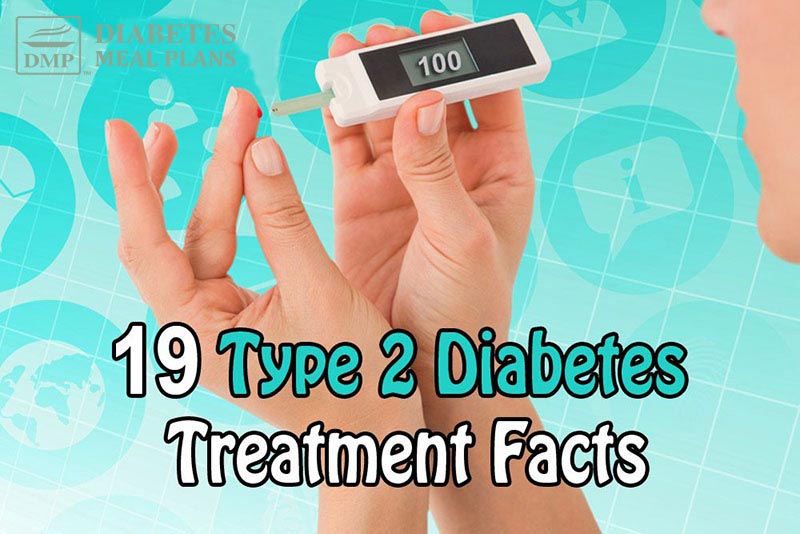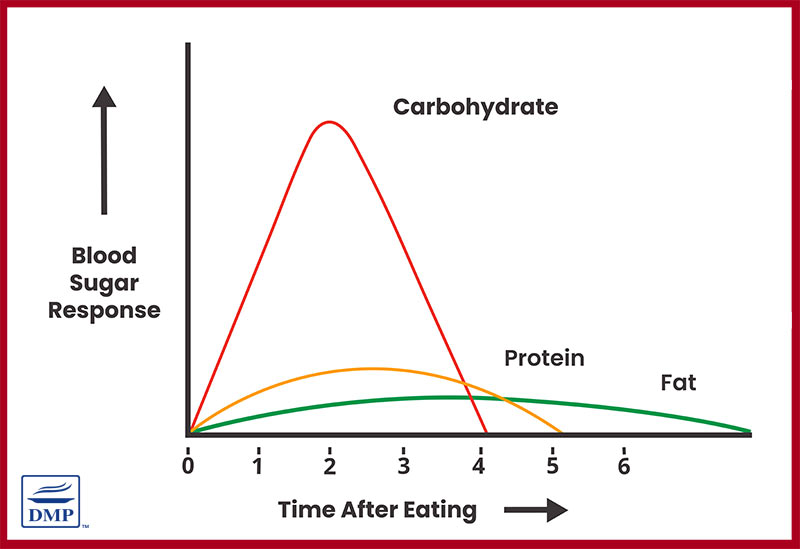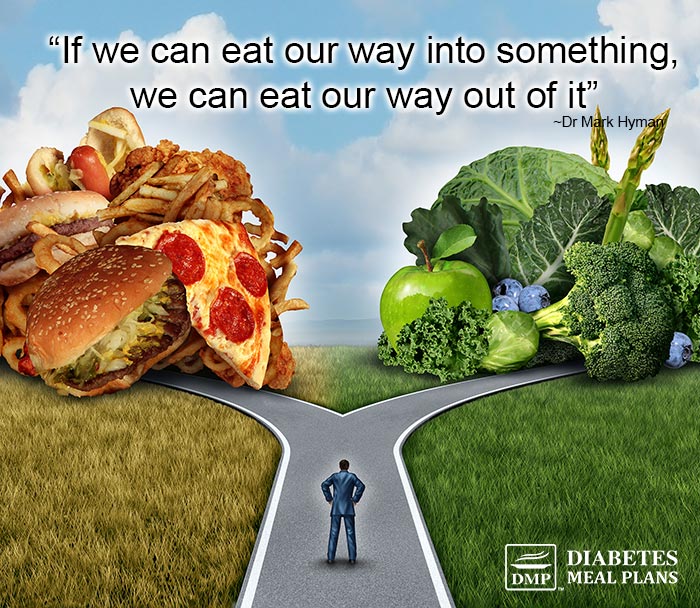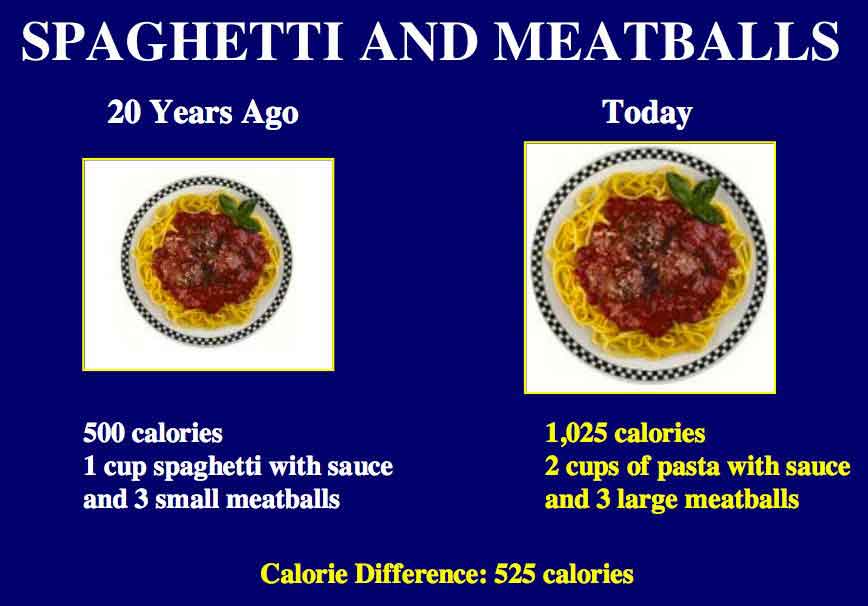Table of Contents[Hide][Show]
- 1. Diabetes Risk Reduction and Treatment are Very Different Concepts
- 2. Type 2 Diabetes is Reversible
- 3. Reducing Carbohydrates is the Key to Lowering Blood Sugar and A1C
- 4. Shoving your Head in the Sand Won’t Make your Problem Go Away
- 5. Monitor and Measure to Understand your Body
- 6. If you Currently take Insulin or Medications, you Can Reduce or Eliminate Them
- 7. Eating Less Protein and Fat and More Carbohydrates is Not Going to Help your Diabetes
- 8. A Lower Carb Diet Outperforms a Low Fat Diet
- 9. The Total Amount of Carbohydrate Eaten is the Primary Predictor of Glycemic Response
- 10. Eating Eggs Does Not Raise Cholesterol
- 11. Fat is Not the Enemy
- 12. Eating More Fiber Provides Amazing Benefits
- 13. You DO NOT have to Eat Whole Grains for Fiber and Nutrients
- 14. Changes Won’t Occur in One Week (or Three)
- 15. Reducing Portion Sizes Can Help Lower Blood Sugar and Increase Weight Loss
- 16. Avoiding the Following 10 Foods is the Fastest Way to Gain Better Control
- 17. Eating a Healthier Diet Will Make you Healthier
- 18. Doing Regular Exercise is Critically Important
- 19. Being Patient and Gentle with Yourself Yields the Best Results
This long list of type 2 diabetes treatment facts is here to help you get better results.
According to the International Diabetes Federation, there were 415 million people with diabetes in 2015, which is estimated to rise to 642 million by 2040. Yes, it’s an issue of epidemic proportions.
BUT, life is not over with diabetes. There are lots of things you can do to improve your health and below you will find a list of 19 things that will help you improve your health and get better results.

1. Diabetes Risk Reduction and Treatment are Very Different Concepts
The very first tip is to be wary when you read information about type 2 diabetes.
Why?
Because a lot of it talks about reducing type 2 diabetes risk not treatment.
‘Reducing risk of getting type 2 diabetes’ and ‘treatment of type 2 diabetes’ are two very different things. But, a lot of the things I read lump the two concepts under the same banner. Have you seen that?
I must admit this is one of my pet hates (I have a few of them) because it doesn’t help you – the person living with type 2 diabetes every day!
I mean, what use is it to know how you can reduce risk when you already have type 2 diabetes, right?
That’s why, here at Diabetes Meal Plans, we always include information on type 2 diabetes TREATMENT. Sure, we talk about risk reduction sometimes, too. But what we’re most interested in here is providing information that can help you treat and manage your condition better.
2. Type 2 Diabetes is Reversible
While type 2 diabetes is not reversible from a diagnostic standpoint (once you have it, you have it), diabetes can be reversible from a physiological standpoint in many.
That is, you can reverse how the body functions and get your blood sugar levels within a normal, healthy range so that you are functioning like a non-diabetic. This is entirely possible and we would say you have “controlled diabetes.”
Once you regulate your body, you wouldn’t want to go back to an unhealthy lifestyle or eating crappy food because your diabetes would just be triggered again quite quickly.
Here are some more resources on reversing your diabetes:
- Check out this amazing case study.
- Hear what Dr Hallberg says about reversing diabetes here.
- What Dr Hyman says about it over here.
3. Reducing Carbohydrates is the Key to Lowering Blood Sugar and A1C
Blood sugar and A1C levels are directly linked to the amount and type of carbohydrates you eat.

Eat carbs, blood sugar goes up – much more than protein and fat. This is simple biochemistry.
A1C levels are an average measure of the amount of glucose in your bloodstream from the previous 3 months. If your levels are high, it indicates you need to lower your carbohydrate content. And of course, do exercise, sleep better, stress less etc.
It’s not rocket science, it’s just the way the body works.
4. Shoving your Head in the Sand Won’t Make your Problem Go Away
With type 2 diabetes, there’s a lot you can do to be healthier and feel better. So, don’t shove your head in the sand. Ignoring your health condition won’t make your problems go away.
In fact, ignoring your condition is a surefire way to set yourself on a downward spiral to nasty complications – neuropathy, foot amputations, eye conditions, heart disease – yes, these are very real and they are the types of things you don’t want to face.
So, do what you can each day to look after yourself.
5. Monitor and Measure to Understand your Body
People that monitor and measure their daily blood sugar levels and focus their awareness on what influences their numbers, often gain better control.
As you monitor and measure, pay attention to the types of foods you eat, beverages you drink, stress levels, exercise (or lack of) and how lack of sleep effects you – as all of these things can influence your levels.
Get to know your body because the more you understand it, the better off you’ll be.
6. If you Currently take Insulin or Medications, you Can Reduce or Eliminate Them
Though this is not possible for everyone, for many it is.
Insulin is not always a great solution because it leads to increased weight gain, blood pressure, and cholesterol. And even though it helps blood sugar it increases appetite, and increases inflammation.
And even metformin, which is commonly prescribed, can often be reduced or eliminated. Though medications are sometimes needed, they should be a last resort and taken at as low a dosage as possible. And, just because you start taking them, doesn’t mean you’ll be taking them forever.
Diet and lifestyle intervention can prevent you going on insulin and can also reverse insulin therapy, meaning you CAN get off insulin if you take the right steps. And metformin is often used as a stepping stone, and may not be required over the long term. Of course, you should always have the support of your doctor and healthcare team to do this.
Studies show that following a lower carbohydrate outperforms other dietary methods when it comes to reducing or eliminating medications and insulin.
But just remember too, if you do need medication. Don’t feel guilty about that either. Everyone’s body is different. But the point is, if you work at it with the help of your doctor, you may be able to reduce or eliminate the need for meds.
7. Eating Less Protein and Fat and More Carbohydrates is Not Going to Help your Diabetes
I’ve had so many people tell me their diabetes educator or dietitian has told them to eat less protein and fat and more carbohydrates. Oh yes, this is another one of my pet hates. I mean, I don’t claim to know everything about diabetes, I’m still learning every day. But something as basic as how nutrients influence the bloodstream…well, like I said above, it’s not rocket science, it’s simple biochemistry.
Quoted from Diabetes UK: “All the carbohydrates you eat and drink are broken down into glucose. The type, and amount, you consume can make a difference to your blood glucose levels and diabetes management.”
And as I indicated above, carbs, carbs, carbs are what is going to influence both your blood sugar and A1C levels the most. Therefore, as research has shown, lowering your carbohydrate intake is often the best first line of action.
8. A Lower Carb Diet Outperforms a Low Fat Diet
Over the years we’ve been told to consume a low fat diet. But a low fat diet is usually a high carb diet. For type 2 diabetes, this is not going to improve your health, for reasons just explained above.
Several scientific studies have now shown that a low carb diet outperforms a low fat diet for:
- Decreasing blood glucose
- Lowering A1C
- Decreasing cholesterol
- Increasing HDL
- Increasing weight loss
9. The Total Amount of Carbohydrate Eaten is the Primary Predictor of Glycemic Response
Glycemic response, blood sugar levels, glucose levels, sugar levels – these all refer to the same thing.
And just to harp on about the carbohydrate thing just a bit more so you get this stuck in your mind – carbohydrates influence your blood sugar levels more than any other nutrient. Plain and simple.

So how many carbs should you eat? It depends.
But, research shows anywhere from 20-120 g per day is best.
Researchers define the level of carbohydrates in the diet as follows:
- Very low carb ketogenic diet: 20-50 g per day. Below 10% intake of 2000 calorie diet.
- Low carbohydrate diet: Below 130 g per day. Below 26% total energy intake.
- Moderate carbohydrate diet: 26-45% total energy intake <<< Research shows these don’t perform as well as lower carb diets
- High carbohydrate diet: Above 45% total energy intake <<< Current ADA recommendations that aren’t working
10. Eating Eggs Does Not Raise Cholesterol
This is a common cholesterol myth.
The truth is, foods that contain cholesterol do not raise blood cholesterol. In fact, it is a process largely managed by your liver and you will be surprised to learn that carbohydrates increase blood cholesterol (by way of how the liver converts them to fat), not something like eggs.
Research shows having an average 2 eggs per day, including the yolks, does not contribute to increased cholesterol, nor does it increase your heart disease risk. Go ahead and enjoy your eggs!
11. Fat is Not the Enemy
Fat is not your enemy. Carbs are! Especially the wrong types of carbs.
But, while this is the case and you will naturally increase fats as you decrease carbs. The type of fat is still important.
It is universally agreed by nutritionists, dietitians and researchers that vegetable forms of fat are better for our health. And, there is still some debate around saturated fat and insulin resistance /sensitivity. Therefore, monounsaturated and polyunsaturated fats are assumed to be better.
Monounsaturated fats – olive oil, avocado, almonds, olives.
Polyunsaturated fats – nuts and seeds, nut butters, fish, chicken.
Don’t be afraid to eat coconut oil, butter, meats and full fat dairy. Just make sure they are included as part of a healthy diet that contains lots of non-starchy vegetables.
12. Eating More Fiber Provides Amazing Benefits
The current fiber recommendations for us are around 25-30 g day. Majority of people don’t get anywhere near that amount, most people averaging under 15 g per day – which just isn’t enough.
Fiber slows the absorption of sugar into the blood stream, which means you have better control over your blood sugar levels. Fiber fill us up more and helps regulate appetite. Fiber promotes healthy gut bacteria, which helps improve our immune function and decrease inflammation. Fiber lowers cholesterol and improves your metabolism.
And the list goes on.
The best place to get fiber?
From non-starchy vegetables – eat LOTS of veggies every day!
13. You DO NOT have to Eat Whole Grains for Fiber and Nutrients
While whole grains contain some nutritional benefits in the way of fiber, vitamins and minerals; they are also problematic for diabetics in that they contribute a lot of calories and carbs. And since grain foods often come as packaged products, they are often combined with sugar, resulting in elevated blood glucose levels.
There is plenty of evidence-based research to suggest certain populations do very well without grains – in fact prior to agriculture, humans subsided on plants and animals alone!
Also, non-starchy veggies are a better source of nutrients and fiber than whole grains. But, you do need to make sure you eat them.
If you’re switching to a lower carb diet and just eating fat and protein, that isn’t really a healthy way to eat. So no, you don’t need to eat whole grains. But, be sure to eat those veggies!
14. Changes Won’t Occur in One Week (or Three)
With any dietary change we often expect instant results.
We often hear things like: “I’ve started eating a low carb diet for a week now and my blood sugar numbers haven’t changed, I haven’t lost weight, or my numbers seem to be going up and down.”
This is all normal!
With any change you need to be patient and give it 3 months to begin to see changes. It takes time for your body’s natural biochemistry to tick over and begins to reverse the changes that have occurred.

Did you get that: Give it at least 3 months!
Of course, in many cases changes can occur sooner, but if they don’t, don’t give up. Just keep on going and the results will follow.
15. Reducing Portion Sizes Can Help Lower Blood Sugar and Increase Weight Loss
Here’s an example of the difference in portion sizes from 20 years ago.
A portion of pasta has increased by 525 calories (over 100 grams carbs)…and that will take an extra 2 ½ hours of house cleaning to burn off – not the whole plate of pasta, just the extra!!!

Add that up over every meal, every day per week and you begin to see why we have issues.
Don’t eat processed foods and junk. These are very easy to eat in larger portions. Instead, choose mostly whole foods – fresh vegetables and fruits, meat, chicken, eggs, fish, nuts, seeds etc – which tend to be very nutrient dense and more satisfying.
Use smaller plates, smaller bowls, and smaller serving utensils. And fill up on non-starchy vegetables first, before transitioning into other food groups.
16. Avoiding the Following 10 Foods is the Fastest Way to Gain Better Control
You can read more about why over here.
And, just because you should avoid these, doesn’t mean you can’t eat foods you love. There are plenty of options and alternatives. You just have to subscribe to our blog – we share ideas every week and will send them straight to your inbox!
17. Eating a Healthier Diet Will Make you Healthier
It goes without saying that anything you do makes a difference.
Even the smallest dietary changes can have a BIG impact.
Your diet doesn’t have to be perfect. The most important thing is consistency over the long term because that’s what impacts your health the most.
As you learn more about diet and health, put it into action. Choose something each day or each week and keep working towards a healthier eating routine.
Please pin, share or tweet, then continue reading. :)

18. Doing Regular Exercise is Critically Important
One of the key characteristics associated with type 2 diabetes is insulin resistance. This is where the cells in your liver and muscles aren’t responding the way they should. And one thing proven to help is exercise.
Exercise is something EVERYBODY should be doing!
A minimum of 30 minutes a day is optimal for general health benefits, though more is probably necessary for weight loss and to gain even larger changes.
Regular walking is all that’s needed. Or try incorporating squats, bridges, or chair leg lifts, which all use big muscle groups that help improve your insulin sensitivity.
19. Being Patient and Gentle with Yourself Yields the Best Results
Most importantly, be nice to yourself. It’s easy to feel guilty or beat yourself up for where you’re at, which is what commonly happens if you’re newly diagnosed. But hey, none of us are perfect and life happens.
Be gentle and love yourself because beating yourself up doesn’t help at all. In fact, it only makes you feel depressed and can send you into a downward spiral.
Surround yourself with loving, helpful people – like us here at Diabetes Meal Plans. And read information that is beneficial to help you move forward every day – like the info we share here at Diabetes Meal Plans.
Be gentle. Be patient. Do what you can every day. That’s what gets the best results!
Please pin, tweet or share this info to help others.


Ella this is good info. I too got off track which you said can happen am working my way back to the meal plan because I know it works. I was pre diabetic , got too comfortable a nd went to 8 when I got checked again ,so I know what to do a d just get back on target, a d I will do it and will keep you focused
Thank you Ella. That is great the meal plan worked for you and you are ready to get back on track!
What a wonderful article! Thanks for sharing this.
Glad you liked it Chris!
Best Information for Diabetics on the web!
Thank You jedha
Thanks Matt. We appreciate your feedback.
I am so depressed is that what make my blood glucose spikes yet i am having food that you guys helpingme with and no sugars and carbohydrate at all for almost 4 weeks but this morning i tested my blood glucose it was 13.5 that reali depressed me. Please help me
How has your blood sugar been on average Sonia? If this is a high reading out of the blue, it could be due to numerous factors, not just what you eat – stress, lack of sleep, illness, or something unusual you ate.
Tough to disagree with any of the above. Since being dignosed I’ve lost 28lbs. 5 days a week at the gym. Two 9 block walks on the wknd. diet changes and the 500mg of daily Metformin. I’m one of the lucky folks who seems to be affected by the meds. And the nightly glass of red wine works for me as well.
The wknds are the worst for me with our family dinner on Sunday and our night out on Saturday, that said I’m 5.4 this am
Yes, you’re definitely an inspiration Brewster!